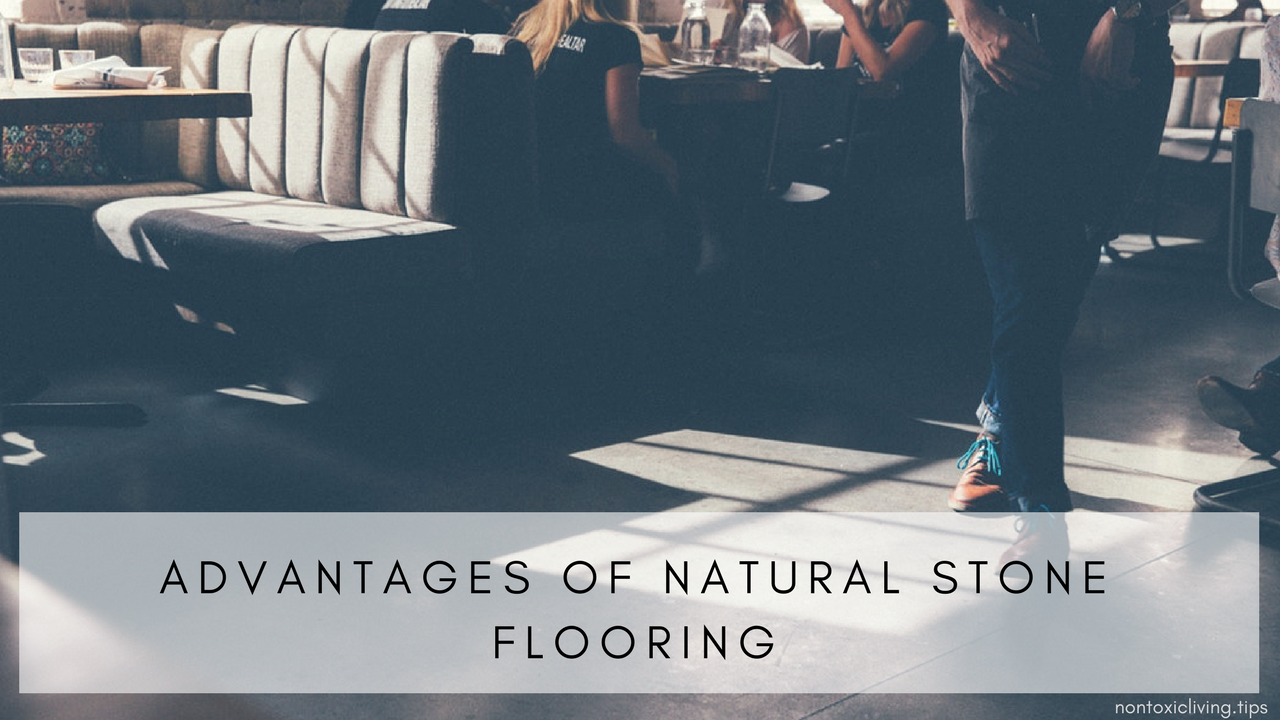
Natural Stone Flooring
Jan 01, 2018by Angela Cummings and Sophia Ruan Gushée
If you're building a new home or replacing an existing floor, you'll have various flooring materials to choose from, and stone is one of the healthier options to consider. It’s great for high traffic and high humidity areas, such as kitchens, bathrooms, laundry rooms, and entry ways. In addition to durability and water resistance, it can be easily cleaned, and it doesn’t hold as much dirt or debris as other flooring options.
You can find stone that is synthetic or natural. An overview of each is provided below.
1. Synthetic Stone
Synthetic stone is called agglomerate stone. Like other synthetic products, it is manufactured using certain chemicals. Agglomerate stone is made from stone chips or granules held together with a polyester resin. (1)
It’s typically less expensive than natural stone, but the resin may contain chemicals, such as styrene and trace amounts of cobalt. (2) Both chemicals may cause cancer (3) and can be harmful to the nervous system, reproductive system, and respiratory system among others. (4) Synthetic stone is generally considered safe for human health. However, how these chemicals from flooring materials may influence those living with these flooring materials hasn't been sufficiently studied.
2. Natural Stone
Natural stone has been used in the building industry for years. In fact, its use for building stems back to the days of ancient Egyptians and Greek empires. Today, it’s still used indoors for flooring, wall finishes (stone tile and fireplace stone), and countertops. Examples of natural stone that are used for flooring include granite, slate, marble, limestone, and travertine.
Natural stone comes in soft and hard stone varieties. They are listed below from softest to hardest.
- Limestone is a soft stone and therefore should not be used in high traffic areas. (5)
- Marble is a harder stone than limestone but can be stained and scratched.(6) Marble is most often used in bathroom settings and other high moisture areas that are lower traffic locations.
- Slate has been used in the building industry for years. It’s a durable, stain- and acid- resistant stone that is dense and strong. Slate does not absorb moisture and is often found in high moisture and high traffic areas.(7)
- Granite is one of the hardest stones available for flooring. It is very resistant to heat, stains, and scratches.(8)
Radioactive elements
It is important to note that even though the stone itself doesn’t carry any hazards, there may be trace amounts of radioactive elements in the stone depending on the location of the quarry that the stone came from. Radioactive elements have been associated with cancer. (9) However, how their presence in flooring materials may influence human health is unknown.
Sealing natural stone
Some types of natural stone need to be sealed, sometimes annually, in order to make it less porous, more stain-resistant, and to protect the stone’s original look. (10) The sealant can be the most toxic factor in having a natural stone floor.
Sealants often contain perfluorinated alkyl compounds (PFAS), which have been linked to reproductive and developmental health hazards. (11) Opt for natural stone that doesn’t require sealant to be applied annually.
Care and maintenance for natural stone
If you're interested in natural stone, then consider the care and maintenance instructions below.
- Check with local retailers or manufacturing companies (on the care sheets or product sheets) to identify the manufacturer's recommended instructions for frequency of sealing.
- To avoid scratching stone floors, leave your shoes at the door, and use an entry rug to help collect debris that is tracked into the house from shoes and can contribute to floor scratches.
- Clean natural stone floors with soap, such as castile soap for the best results. If you see white streaks left behind when the floor dries, that is soap residue and an indicator that there is too much soap in the water. Rinse the floor with a wet mop or cotton cloth to remove the residual soap. Do not use acidic cleaners such as vinegar or lemon juice on marble and limestone. (12) However, always check with the natural stone supplier on maintenance and care instructions for your specific stone.
In Summary
When selecting flooring, consider what the room will be used for, and the required care and maintenance of your selected flooring materials. Installing natural stone flooring can be healthy, beautiful, and durable. However, natural stone can be much more expensive, depending on which type of stone you choose and how much you need. Synthetic stone can be much more practical: cheaper, very durable (resistant to scratches and stains), and low maintenance.
References
(1) (2) (3) (9) (11)Healthy Building Network
(6) (7) (8) (12)Building Stone Institute
(4)A to Z of D-Toxing, Works Cited Part 2
(5) (10)World Floor Covering Association
Stay connected with nontoxic lifestyle news and updates!
Receive our free Ruan Living Nontoxic Cleaning Guide when you join our email list.
Don't worry, your information will not be shared.
We hate SPAM. We will never sell your information, for any reason.







